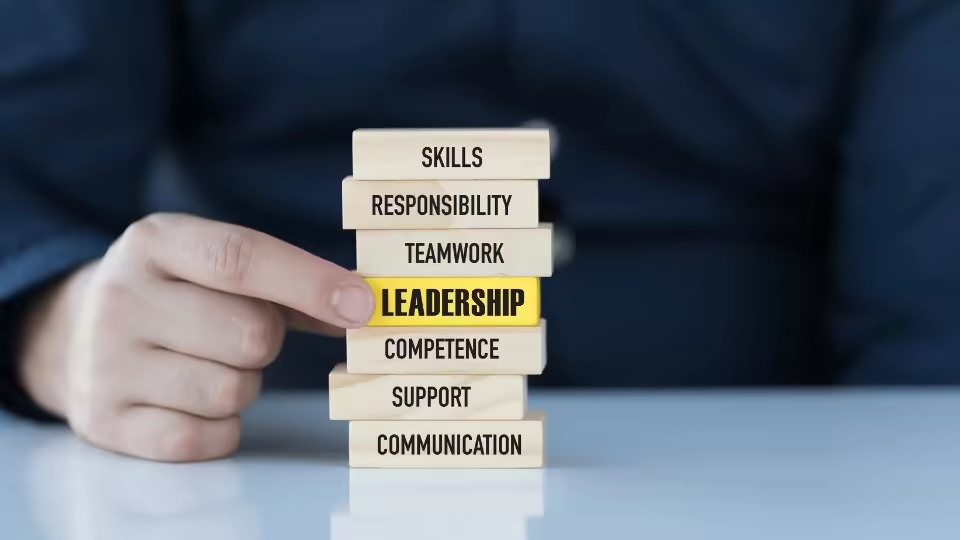According to SHRM, focusing on leadership skills enables good leadership. The abilities or traits people exhibit in positions of influence are known as leadership skills. CEOs must exhibit excellent leadership traits for them to win.
Collaboration, inspiration, and good communication are all crucial leadership traits, according to McCauley, C. (2006). A group of people can be directed and inspired to achieve a common objective or set of goals with the help of leadership abilities. Twenty leadership skills that every leader should know are listed below.
1. Effective Communication
According to a study by Harvard Business Review, one of the 20 leadership skills every leader should have is communication. It will be difficult to convince your staff to support your vision if you can't communicate with them. As per a research paper on the role of communication in enhancing work effectiveness, it was concluded that communication as a leadership skill promotes interpersonal interactions and creates an atmosphere conducive to the internal growth of the business. Communicated instructions improve organizational performance.
2. Strategic Thinking
Failure to strategically think as leaders is also strategically planning to fail. This research emphasizes why strategic thinking is one of the 20 leadership skills that every leader should know. Since they are expected to make difficult decisions, leaders need to be able to think strategically.
Strategic thinking skills help leaders to understand the bigger picture and base their choices on strategic thinking. A positive correlation between leaders' strategic thinking and organizational success has been established through research.
3. Synergetic
The Center for Creative Leadership shows that synergetic skills help with quick decision-making and reduce conflict within the organization. A great leader concentrates on aligning their goals with those of their team. In a study with the title "Effects of Collaborative Leadership on Organizational Performance", it was found that there is a positive correlation between synergetic leadership and performance. The study further urged leaders to assume a collaborative leadership style to improve performance.
4. Adaptability
Adaptability is one of the 20 leadership skills that every leader should have. Adaptability skills drive innovation and change, promoting increased individual and organizational performance.
5. Proactivity
A great leader is proactive and doesn't wait for things to happen. Threats are recognized, and countermeasures are taken well in time by leaders with proactive skills. They are continuously considering methods to get better and perform better. A study focusing on understanding proactive leadership concluded that proactivity brings about change that leads to positive performance outcomes.
6. Flexibility
The most effective managers step outside their comfort zones and quickly adjust to shifting workplace dynamics. A successful leader also encourages employee engagement and is open to receiving helpful criticism from the group. Research on the importance of flexible leaders indicated that flexibility and adaptability are essential leadership skills.
7. Motivating
Research on the effects of leadership mentoring and motivation on employee efficiency concluded that there was a significant positive correlation. Based on this research, leaders should have the skill of motivating their employees for them to boost performance. Research to find out the role of leadership in employee motivation indicated that transformational leaders help increase organizational commitment and employee performance.
8. Innovative
Being open to new ideas and approaches is a key competency for leaders. Innovation is a crucial leadership trait since it involves the capacity for original thought and the generation of fresh concepts. This study shows that one of the most crucial and challenging problems that organizations confront today is innovation.
9. Resilient
Leaders who possess this trait can survive and thrive in challenging circumstances. . Research covering leadership and resilience indicated that resilient leaders put together teams with a variety of specialities and problem-solving skills, and when necessary, they acknowledge the experience of others.
10. Problem-Solving
Problem-solving is one of the 20 leadership skills every leader should know because in every organization, regardless of the industry, problems will be encountered. Before things spiral out of control, leaders who can solve problems may identify issues and come up with remedies. Problem-solving leaders are also quick to turn challenges into opportunities.
11. Analytical
A research paper indicated that the benefits of analytical skills to leaders and other employees include:
- helping to implement job responsibilities in an organized manner,
- encouraging the use of cutting-edge techniques,
- encouraging teamwork,
- increasing productivity and profitability,
- helping to achieve organizational goals,
- and improving the organization's overall structure.
Analytical skills will help leader perform their jobs well, accomplish organizational objectives, and carry out the proper operation of an organization's general structure.
12. Negotiating
Leadership requires the ability to negotiate since it enables one to build connections with stakeholders, accomplish corporate goals, and settle disputes at work. By resolving disputes in a way that preserves relationships at work and is mutually agreeable, leaders can use their negotiation abilities to assist in managing interpersonal issues. When negotiations are conducted skillfully, both management and the union will make a significant contribution to achieving the desired result.
13. Time management
Managers need to have time management skills. Time management skills are essential for completing organizational activities and preventing the loss of organizational resources. The achievement of goals and targets is substantially aided by effective time management. Time management is crucial because, in addition to enabling organizational goals, it also helps organizations become more productive by outpacing their competitors and completing more tasks on schedule to satisfy external stakeholders and customers.
14. Project Management
Since project management involves important things like planning, coordinating projects, and project execution, it is a crucial leadership skill. Project management is a skill that is always changing to boost organizational competence. It offers a practical method for organizational development and progress. Clear goals can be created, risks can be identified and managed, and resources can be allocated efficiently by leaders who have project management abilities. They are also capable of inspiring and motivating their team to achieve.
15. Mentoring Skills
Mentoring skills include supporting and mentoring others as they advance their knowledge and abilities. Research on the effects of leadership mentoring on employee efficiency concluded a significant positive correlation between leadership mentoring and employee efficiency. Mentoring abilities enable leaders to support the growth and development of their teams, which can raise output and boost an organization's performance. According to research, 70% of small businesses that receive mentorship survive for five years or more, which is twice as many as those who do not receive mentoring.This is why every leader should be aware of this skill.
16. Emotional Intelligence
The capacity to comprehend and control one's emotions and those of others is known as emotional intelligence (EI) and is a very important leadership skill. Nearly 90% of what distinguishes top performers from colleagues with comparable technical abilities and knowledge is emotional intelligence. Emotionally savvy leaders can recognize and address the feelings of their team members. They can do this to develop the trust and chemistry necessary for lasting relationships. According to a study, emotional intelligence (self-awareness, self-regulation, motivation, empathy, and social skills) boosts other leadership competencies.
17. Cost Effectiveness
The capacity to obtain a desired result while minimizing costs is known as cost-effectiveness. Cost-effectiveness is one of the 20 leadership skills every leader should know. Effective leaders can deploy resources more wisely because they are cost-effective. According to the Harvard Business Review, cost-effective executives can support their strategy by reducing waste and allocating resources to worthwhile expenditures.
18. Business Storytelling
Business storytelling is an essential management and leadership skill because it helps develop an emotional connection with your audience. Scientists are discovering that chemicals like cortisol, dopamine and oxytocin are released in the brain when told a story." Those three chemicals, respectively, help us retain information, make an emotional connection, and experience genuine empathy. Business storytelling has helped so many companies sell their products better. A key example is how Apple leaders use its famous Apple Event to tell its clients the story of its products.
19. People Management
People management skills entail being aware of and concerned for workers. This could be attending to their well-being, assisting them in overcoming obstacles or motivating them to put up their best effort and work toward achieving their professional and personal development objectives. This is a useful leadership skill because it builds trust between colleagues. According to a Harvard Business Review study, high-performing team managers are likelier to have great people management skills.
20. Accountability
A good leader must take responsibility for their deeds and choices. Research focusing on the relationship between leadership and accountability indicated that accountability issues have been connected to corporate scandals, and company leaders are under more pressure than ever to be accountable. The most successful leaders are those who develop a work culture of high performance and trust while embracing accountability and empathy. Being accountable for your actions will create a sense of responsibility among you and your subordinates, and everyone will go about the business more seriously.
In conclusion, leadership skills are essential for success in any organization or team. The 20 leadership skills discussed in this article highlight effective leaders' diverse qualities and abilities. From communication and empathy to adaptability and resilience, these skills enable leaders to inspire and motivate their team members, make informed decisions, and confidently navigate challenges.



